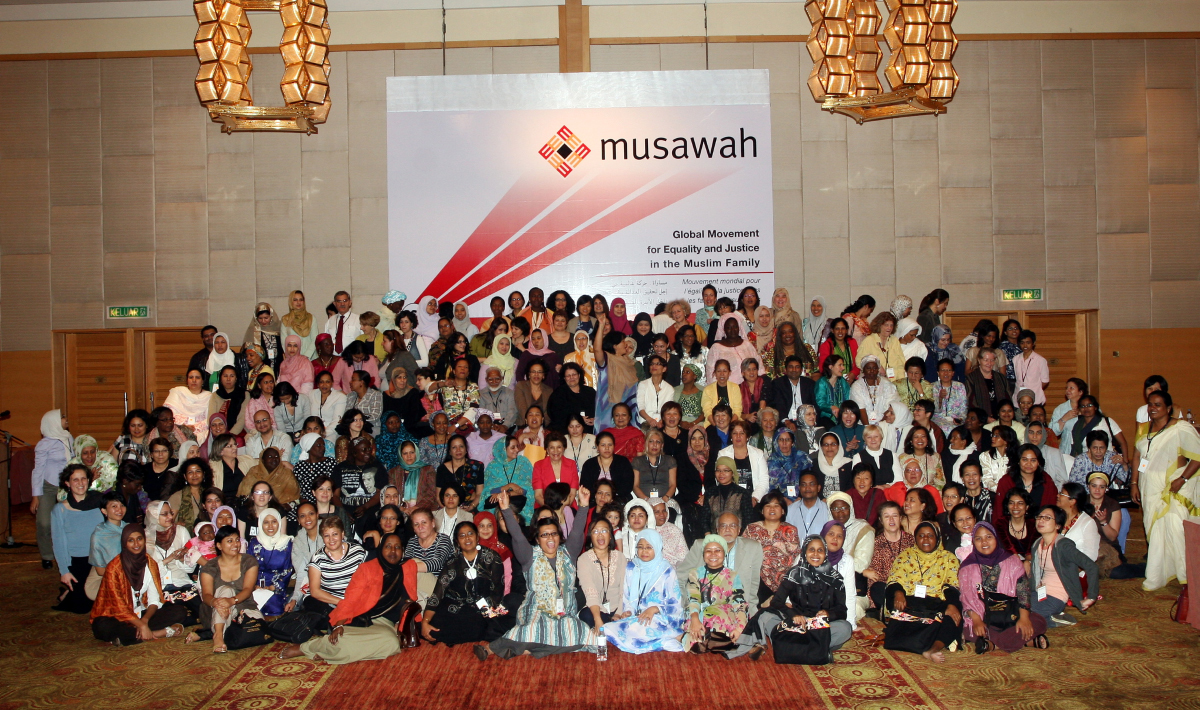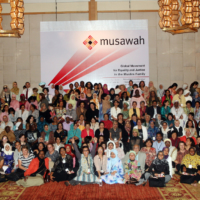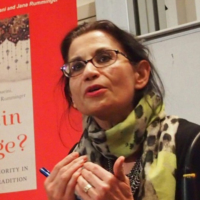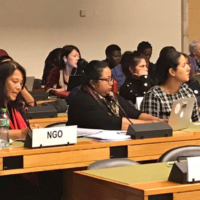This year, the 42nd Niwano Peace Prize will be awarded to Musawah, an international, nonprofit, nongovernmental organization in special consultative status with the Economic and Social Council of the United Nations. This is in recognition of Musawah’s immense efforts to strengthen citizenship and peaceful coexistence worldwide in their advocacy for equality and justice for women living in Muslim contexts, while creating contexts and platforms for interfaith dialogue and spiritual solidarity.
Musawah is a women’s movement committed to social, religious, spiritual and racial justice, protecting women’s human rights through faith and interfaith values. It has trained over 700 activists, academics and policymakers from 40 countries on gender equality and justice.
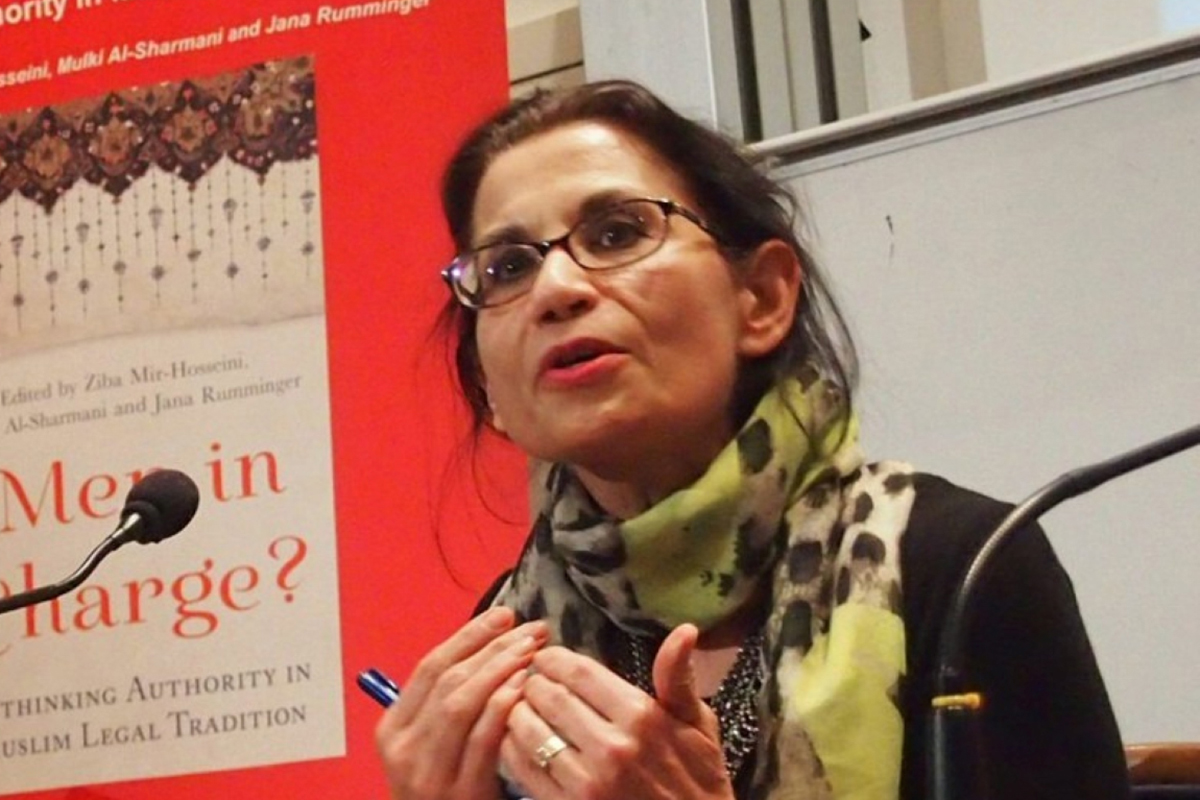
The organization addresses discrimination throughout history, aiming to amplify the voices of women who have been silenced in political, cultural and religious contexts. Its international network includes hundreds of advocates from over 40 countries in Asia, the Middle East, Africa and the Global North, campaigning for positive changes in attitudes, practices, laws and policies to support the human rights of women and girls in Muslim countries.
To avoid undue emphasis on any religion or region, every year the Niwano Peace Foundation solicits nominations from people of recognized intellectual and religious stature around the world. In the process, hundreds of people and organizations are asked to propose candidates. Nominees are rigorously screened by the Niwano Peace Prize Committee, which consists of nine religious leaders from diverse geographical areas, all of whom are involved in movements for peace and interreligious cooperation.
The award ceremony will take place on May 14 in Tokyo, where Musawah will receive a certificate, a medal and ¥20 million.
Founded in 2009, the organization is headquartered in Kuala Lumpur and was launched at a meeting attended by over 250 people from 47 countries. Musawah’s founding members include current Board Chair Zainah Anwar, formerly founding executive director of Sisters in Islam, and board member Ziba Mir-Hosseini, a legal anthropologist and convenor of the Musawah Knowledge Building Working Group. The organization works through a secretariat of 21 team members encompassing Asia, the Middle East and North and Sub-Saharan Africa, advancing efforts in knowledge-building and capacity-building while coordinating the Campaign for Justice in Muslim Family Laws and engaging in international advocacy, communications and outreach.
Musawah’s vision is to live in a world where gender equality, justice and nondiscrimination are embraced as inherent in Islam and reflected in laws and practices. Its five-year objective is to amplify its voice globally and accelerate recognition that reform of discriminatory family laws and practices within Islam is possible. Musawah’s strategic initiatives include facilitating the expansion of public discourse, building a collective force for change, developing accessible knowledge resources and strengthening capacities and constituencies. Musawah’s knowledge-building work involves creating new feminist knowledge using the Musawah Framework for Action, which grounds the demand for reform holistically within Islamic principles, human rights standards, constitutional guarantees of equality and nondiscrimination, and the lived realities of today.
Musawah’s capacity-building activities empower activists, decision-makers and rights groups to critically speak out on the impact of laws, policies and practices justified in the name of Islam and promote an understanding of Islam that upholds equality and justice.
Offering learning opportunities, Musawah’s flagship course, titled Islam and Gender Equality and Justice, enables participants to understand how knowledge is constructed in the Muslim tradition and introduces them to the diversity of interpretations and juristic tools and concepts that make reform toward equality and justice possible. Musawah also offers shorter, customized training and hosts regional outreach calls to build knowledge and provide space for networking and movement-building.
The Campaign for Justice in Muslim Family Laws, launched on the International Day of Families on May 15, 2020, brings together advocates for family law reform from the Middle East, North and Sub-Saharan Africa, and South and Southeast Asia to build capacity, share strategies and build public support for the idea that change is necessary and possible. The campaign aims to encourage groups at the national level to build an international coalition to make family law reform a priority global issue.
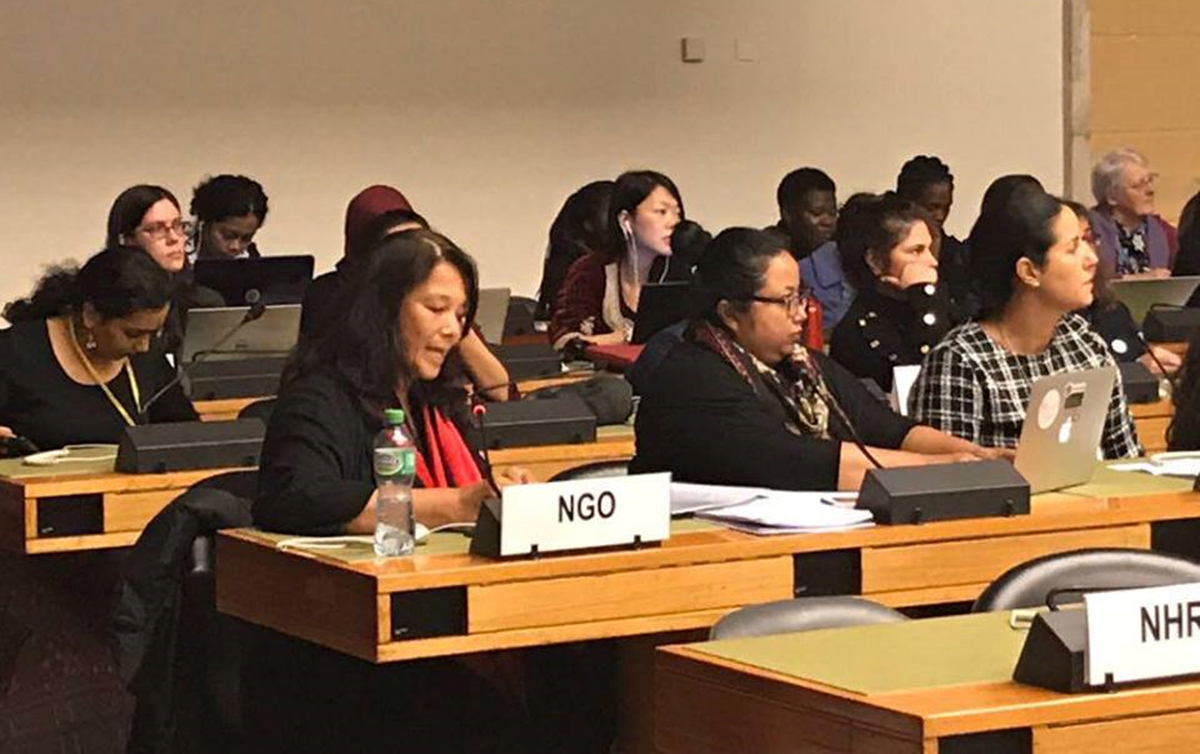
Musawah’s international advocacy program supports international human rights mechanisms and NGOs by providing concepts and language that bridge the gap between Islam and human rights. Musawah regularly issues statements and submits thematic reports to the Committee on the Elimination of Discrimination against Women, the body of independence experts adopted by the United Nations, and has engaged in more than 30 CEDAW sessions since 2011. Musawah has also been active at the Commission on the Status of Women and has developed research on progress toward the U.N. sustainable development goal for gender equality. Musawah’s communications and outreach activities raise visibility, popularize the Musawah Framework for Action, and share knowledge among broader communities. Key activities include the Women’s Storytelling and Multimedia Project, Musawah Artists’ Collective, blogs, presentations, podcasts, digital activism, an “artivism” exhibition, a quarterly e-newsletter, and social media. Musawah’s website features a resources section with over 200 materials that can be filtered by various criteria.
In a letter accepting the award, Anwar highlighted Musawah’s commitment to gender equality within Muslim contexts, writing: “For over 15 years, Musawah has championed the values of equality and justice within Muslim societies. Our work has demonstrated that human rights and religion can coexist harmoniously, and that the principles of equality and justice are inherent in religious frameworks.”
She emphasized the importance of empowering women, saying: “By empowering women living in Muslim contexts, we seek to create a world where gender equality and justice are integral to religious teachings and reflected in laws, policies and practices. This remains a major challenge, given the difficult times we live in. But our faith in a God that is just and our belief that religion can be a source of liberation keep us unwavered on our path to end discrimination and injustice in the name of God.”
Niwano Peace Prize recognizes individuals and organizations contributing to interreligious unity
The Niwano Peace Foundation established the Niwano Peace Prize to honor and encourage individuals and organizations that have contributed significantly to interreligious cooperation, thereby furthering the cause of world peace, and to make their achievements known as widely as possible.
The foundation hopes in this way both to enhance interreligious understanding and cooperation and to encourage the emergence of still more persons devoted to working for world peace.
The prize is named in honor of the founder and first president of the lay Buddhist organization Rissho Kosei-kai, Nikkyo Niwano. For Niwano, peace was not merely an absence of conflict among nations, but a dynamic harmony in the inner lives of people as well as in our communities, nations and the world.
Niwano Peace Prize recipients
2024 Mohammed Abu-Nimer
2023 Rajagopal P. V.
2022 Michael Lapsley
2021 Shih Chao-hwei
2020 Pomnyun
2019 John Paul Lederach
2018 Adyan Foundation
2017 Munib A. Younan
2016 Centre for Peace Building and Reconciliation
2015 Esther Abimiku Ibanga
2014 Dena Merriam
2013 Gunnar Stalsett
2012 Rosalina Tuyuc Velasquez
2011 Sulak Sivaraksa
2010 Ela Ramesh Bhatt
2009 Gideon Baguma Byamugisha
2008 Prince El Hassan bin Talal
2007 Cheng Yen
2006 Rabbis for Human Rights
2005 Hans Kung
2004 The Acholi Religious Leaders’ Peace Initiative
2003 Priscilla Elworthy
2002 Samuel Ruiz Garcia
2001 Elias Chacour
2000 Kang Won-yong
1999 The Community of Sant’Egidio
1998 Maha Ghosananda
1997 The Corrymeela Community
1996 Marii K. Hasegawa
1995 M. Aram
1994 Paulo Evaristo Arns
1993 Neve Shalom/Wahat al-Salam
1992 A.T. Ariyaratne
1991 Hildegard Goss-Mayr
1990 Norman Cousins
1989 Etai Yamada
1987 The World Muslim Congress
1986 Philip A. Potter
1985 Zhao Puchu
1984 Homer A. Jack
1983 Helder P. Camara



